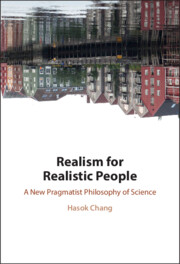Chapter 1 - Active Knowledge
Published online by Cambridge University Press: 08 November 2022
Summary
I propose to understand knowledge in the context of action, refocusing epistemology in order to make it more suitable for engaging with actual practices in science and other realms of life. What I call ‘active knowledge’ is a matter of ability; active knowledge is a prerequisite of propositional knowledge, and propositional knowledge contributes to it. I offer an analysis of active knowledge as operative in ‘epistemic activities’ and ‘systems of practice’ carried out by purposive epistemic agents. The quality of active knowledge consists in ‘operational coherence’, which is a matter of doing what makes sense to do in order to achieve our aims. Inspired by Dewey, I see inquiry as an effort to increase operational coherence, a process in which no aspects of our activities are immune from revision. Generally my thinking is inspired by pragmatism, which I take as a relentless kind of empiricism, which insists that the full lived experience of epistemic agents is the only source of any learning, including learning in logic, methodology and metaphysics.
Keywords
- Type
- Chapter
- Information
- Realism for Realistic PeopleA New Pragmatist Philosophy of Science, pp. 12 - 67Publisher: Cambridge University PressPrint publication year: 2022

